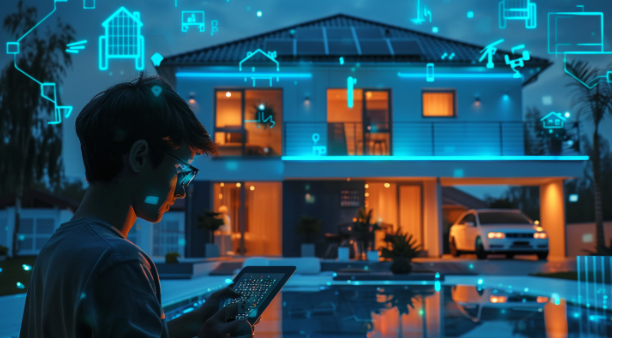What is the Most Efficient Form of Energy for a Home?
As homeowners become increasingly conscious of both their energy bills and environmental impact, finding the most efficient form of energy for their homes has become a top priority. This article explores various energy options, ultimately determining which is the most efficient for residential use. We’ll also highlight how Chariot Energy can help you make the most cost-effective and eco-friendly choice for your home.
Understanding Energy Efficiency
Energy efficiency refers to the amount of energy used to perform a particular task. The more energy-efficient a system or source is, the less energy it requires to achieve the same result, thereby reducing waste and lowering costs. In a residential context, energy efficiency translates into significant savings on utility bills and a reduced carbon footprint.
The Most Common Energy Sources for Homes
Electricity
Electricity is the most common energy source for homes, powering everything from lighting to heating and cooling systems. While it’s convenient and widely available, electricity generation is often associated with high carbon emissions, especially when derived from fossil fuels like coal and natural gas.
Natural Gas
Natural gas is another popular energy source, particularly for heating and cooking. It’s generally more cost-effective than electricity and has a lower carbon footprint. However, it’s still a fossil fuel, and its extraction and distribution can have environmental consequences.
Solar Energy
Solar energy, harnessed from the sun, is a renewable and increasingly popular option for homeowners. Solar panels convert sunlight into electricity, providing a clean and sustainable energy source. While the initial installation costs can be high, the long-term savings and environmental benefits make solar energy a compelling choice.
Wind Energy
Wind energy is another renewable option, though it’s less common for residential use. Small wind turbines can generate electricity for homes, but they require a suitable location with consistent wind patterns. Despite its potential, wind energy is not as widely adopted as solar energy for individual homes.
Determining the Most Efficient Form of Energy
Solar Energy Takes the Lead
When considering all factors—cost, environmental impact, and efficiency—solar energy emerges as the most efficient form of energy for homes. Here’s why:
- Cost Savings: After the initial investment, solar energy systems can drastically reduce or even eliminate your electricity bills. Many homeowners recoup their installation costs within a few years.
- Environmental Impact: Solar energy produces no direct emissions, making it an eco-friendly choice. It helps reduce reliance on fossil fuels and lowers your household’s carbon footprint.
- Energy Independence: With solar panels, you can generate your own electricity, reducing your dependence on the grid and shielding yourself from energy price fluctuations.
Chariot Energy—Your Partner in Solar Efficiency
Chariot Energy specializes in providing solar energy solutions that maximize efficiency and savings for homeowners. With customizable plans and a commitment to sustainability, Chariot Energy makes it easy to transition to solar power. By choosing Chariot Energy, you’re not only investing in your home’s efficiency but also contributing to a cleaner, greener future.
Case Studies and Data
Solar Energy in Action
A study by the National Renewable Energy Laboratory (NREL) found that homeowners who installed solar panels saw an average reduction of 75% in their electricity bills. Additionally, homes powered by solar energy reduced their carbon emissions by an average of 3-4 tons annually.
Data Insights
According to the U.S. Energy Information Administration (EIA), solar energy adoption has grown by 33% annually over the past decade, with residential solar installations leading the charge. This growth is driven by increasing awareness of environmental issues, as well as the declining costs of solar technology.
Conclusion
When it comes to finding the most efficient form of energy for your home, solar energy stands out as the best option. It offers unmatched cost savings, significant environmental benefits, and the potential for energy independence. By partnering with Chariot Energy, you can take full advantage of solar power and make a positive impact on both your finances and the planet.
For more information on how you can transition to solar energy, visit Chariot Energy today.

